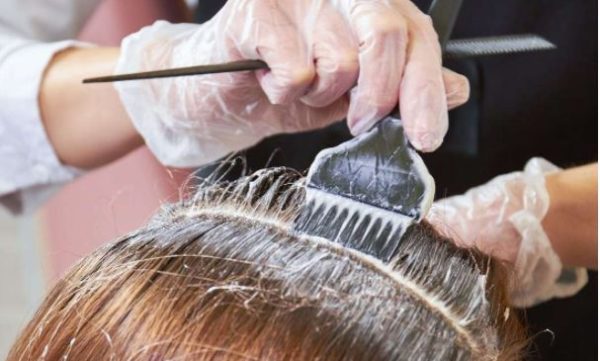Lifestyle
Hair dyeing: The side effects of changing your hair color will shock you

The art of hair dyeing is all about the reactions that take place in between the pigments in the hair, the pigments in dye, peroxide, and ammonia. And these reactions can best be described as chemical reactions.
Be that as it may, chemical reaction which is a process that involves the rearrangement of the molecular or ionic structure of a substance is not something we should encourage to alter our looks.
But this doesn’t change the fact that to most people, dyeing of hair is one of the most fun things to do.
To them there is really no difference between changing their hair colour and changing their clothes.
However, in as much as it cannot be denied that hair tinting gives the face a certain kind of classy, it should also be made known that dyes can often come with harmful side effects.
This is why we’ve decided to put together this article in other to let you know the side effects of hair dyeing.
Read on to see some of the side effects that come with dyeing of hair.
1. Allergic reactions
Hair dyes contain paraphenylenediamine, and paraphenylenediamine is a common allergen (An allergen is a type of antigen that produces an abnormally vigorous immune response, which the immune system fights off a perceived threat that would otherwise be harmless to the body).
So whether you are colouring your hair for the purpose of experimenting or just to enjoy the feeling that comes with dyeing one’s hair, you stand the chance of risking severe allergic reactions.
This is why people who have contact dermatitis are particularly prone to reactions because of the PPD and other chemicals that are present in dyes. Therefore, it is advisable for those with skin conditions like eczema and psoriasis to refrain from using hair dyes.
However, it is also important to keep in mind that not having had an allergic reaction in the past does not mean you won’t have one in the future.
2. Irritable skin
Dermatologists have been advising people for some time now to abstain from using hair dye at the slightest hint of any skin reaction; because skin reaction is another side effect that periodically comes with hair colouring.
Some common symptoms include burning sensations, redness, and flaky skin, itchiness and discomfort.
3. Conjunctivitis
It is almost impossible to dye your hair yourself without the dye touching your face. When this happens, chemicals from the dyes can make contact with your eyes, which can lead to conjunctivitis or pink eye.
In other cases, it causes inflammation and severe discomfort.
4. Fertility issues
There is a particular ingredient that is commonly used in permanent hair dyes, it is known as Lead acetate.
Researchers have made it public that there’s a possible link between this chemical and fertility issues in men and women. And that nothing has been done about it does not mean that the researchers are wrong.
However, it is advisable for pregnant women to refrain from using any kind of hair dyes as the chemicals present may cause malignancy in their unborn child.
5. Cancer
Although this might sound shocking and somewhat unbelievable, the fact still remains that it is true. When permanent hair dyes were first introduced, they were found to have carcinogenic compounds (cancer-causing compounds.)
While the formulas were altered to replace these chemicals, the debate as to whether hair dyes can cause cancer is yet to be settled.






